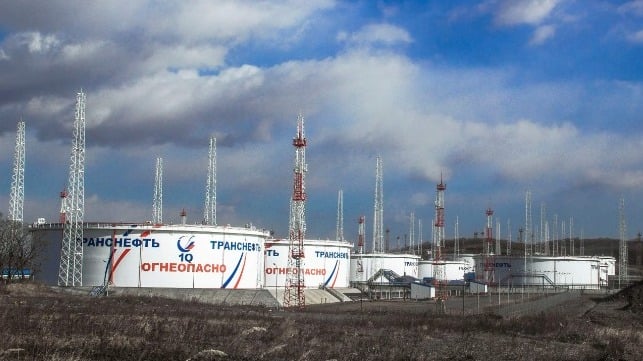Sanctions Risk Reduces Greek Owners' Appetite for Russian Oil Trade

With increased risk of sanctions enforcement for carrying higher-priced Russian oil, Greek tanker owners - who provide more ships for Russia's oil trade than any other nation - are beginning to back away, according to tracking firm Vortexa.
U.S. and EU shipping companies and maritime service providers are allowed to participate in the transport of Russian crude, so long as it is priced below $60 per barrel. By placing a regulatory price cap on Western participation, the G7 nations hoped to somewhat reduce Russia's earnings without removing Russian oil exports from the global market. The policy has ensured the continued flow of Russian oil, but has had little effect on the revenue. Russian ESPO grade exports out of Kosmino exceeded $60 per barrel from the first day of implementation, and the benchmark Urals grade broke through the $60 barrier on July 15. In addition, Russian sellers have had little difficulty in boosting the real sales price of their oil by adding on excess fees, which raise billions in additional revenue without affecting compliance.
Vortexa's data shows that in the first seven months of the price cap's implementation, Greek owners provided the largest share (about 40 percent) of the Aframax and Suezmax tanker fleet calling at Russian seaports. They also provided a similar share (about 40 percent) of the product tanker fleet carrying Russian diesel. Their interest in the Russian trade declined somewhat after July 15, when Urals broke past the $60 price barrier. Greek ships now amount to about 30 percent of the fleet serving the Russian oil market, on par with Russian-controlled vessels.

that matters most
Get the latest maritime news delivered to your inbox daily.
According to Vortexa, most of the vessels leaving the Russian market are departing for other trades in the Persian Gulf and Eastern Mediterranean.
75 percent of the world's "opaque market" tanker operations serve Russian crude, but the modern dark fleet was originally built to serve Iranian and Venezuelan exports, and these U.S.-sanctioned trades are still active. Greek owners have comparatively little appetite for the Iranian and Venezuelan trades, according to Vortexa. The primary operator in both of these markets is China, which has about 80 ships in each fleet.
